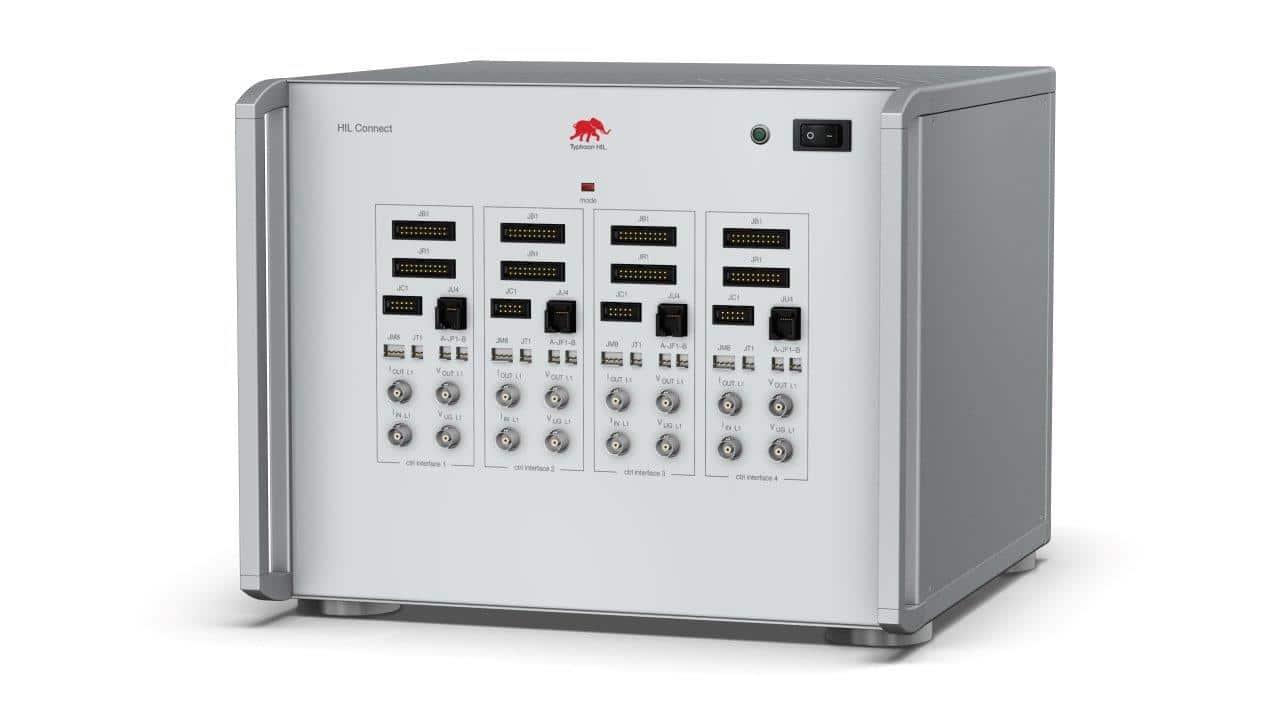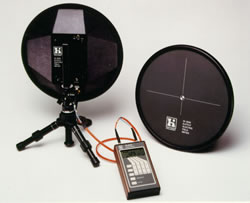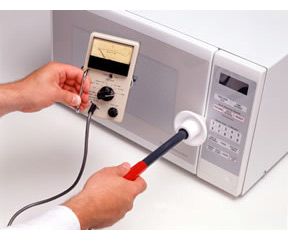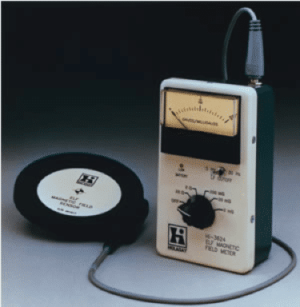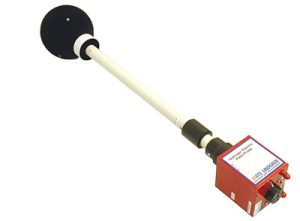HIL Connect Interface System
To completely test, verify, and certify your power electronics controller in hardware-in-the-loop configuration it is critical that the controller under test is not modified in any way. Controller has to “feel” that it is controlling the real converter hardware, meaning that all the current/voltage/optical I/O interfaces have to behave as the real power stage signals. All the interface signals have to be provided by HIL and impedances and signal levels have to be matched.
Typhoon HIL engineers refined their immense power electronics industry experience into Connect interface system to support all the true power electronics controller I/O interfaces. Finally, we can work with you to modify interface connectors so you can use the exact same cables for connecting real power stage to the controller to connect the controller to the HIL.
HIL Connect solution is designed to faithfully emulate your power stage and sensor/conditioning stage. The power stage is modeled in the HIL emulator, which communicates with the outside world via low voltage IO (5V).
To enable direct connection of unaltered controller IO signals to the emulator, the HIL Connect device conditions and transduces IO signals (i.e. shifts voltage, converts voltage to current, voltages to light etc.).
HIL Connect interface solution enables realistic emulation of current/voltage transducers and IO signal conditioning:
- LEM sensors, current transformers
- Voltage sensors
- Relays and contactors
- Temperature and other low-power sensors
- Input/output impedance matching
- Batteries
HIL602 with HIL Connect provides a comprehensive environment for design and testing of control systems for micro-grid power electronics converters. TyphoonLink-Gigabit per second serial link-enables seamless connection of multiple HIL602 units into one unified HIL system that can simulate 16 or more converters.
Whether you are testing a single converter control or multiple converter control (centralized or decentralized) HIL602 in the cluster configuration provides a unified environment that is as easy to use as if you were working with single HIL unit. Compile schematic diagram from the Schematic Editor; control the real-time emulation process via HIL Control Panel; quickly access all simulated signals via the Scope/Capture function-the same way as if you were using a single HIL. Finally, automate testing with Python scripts via Typhoon API.

